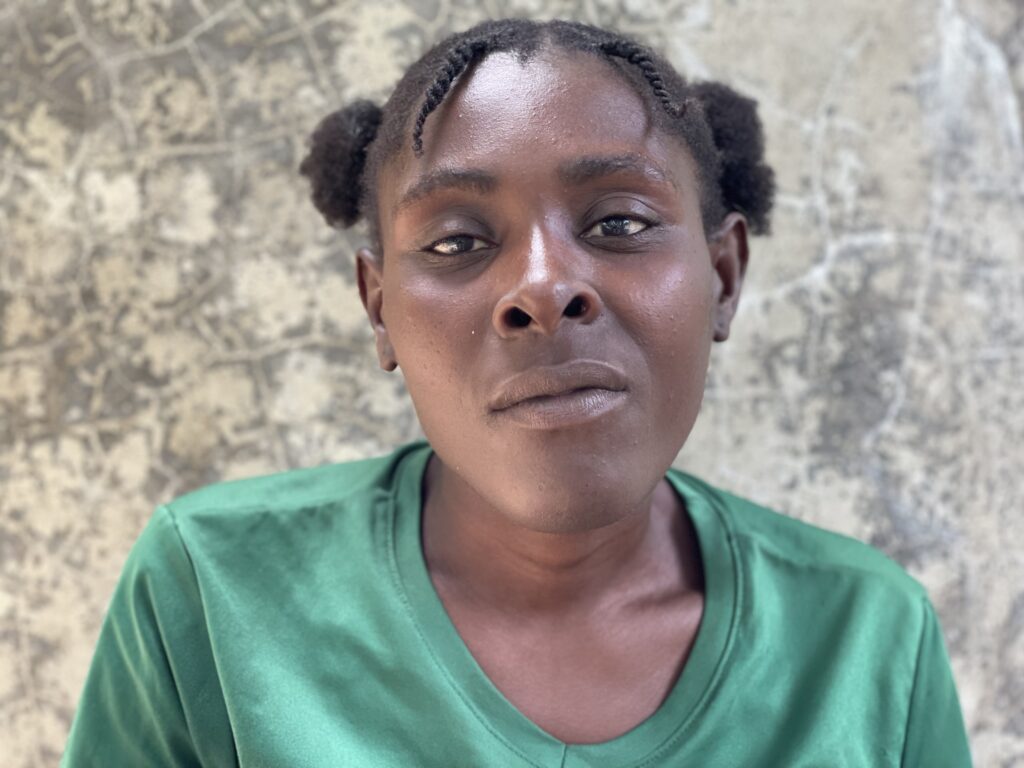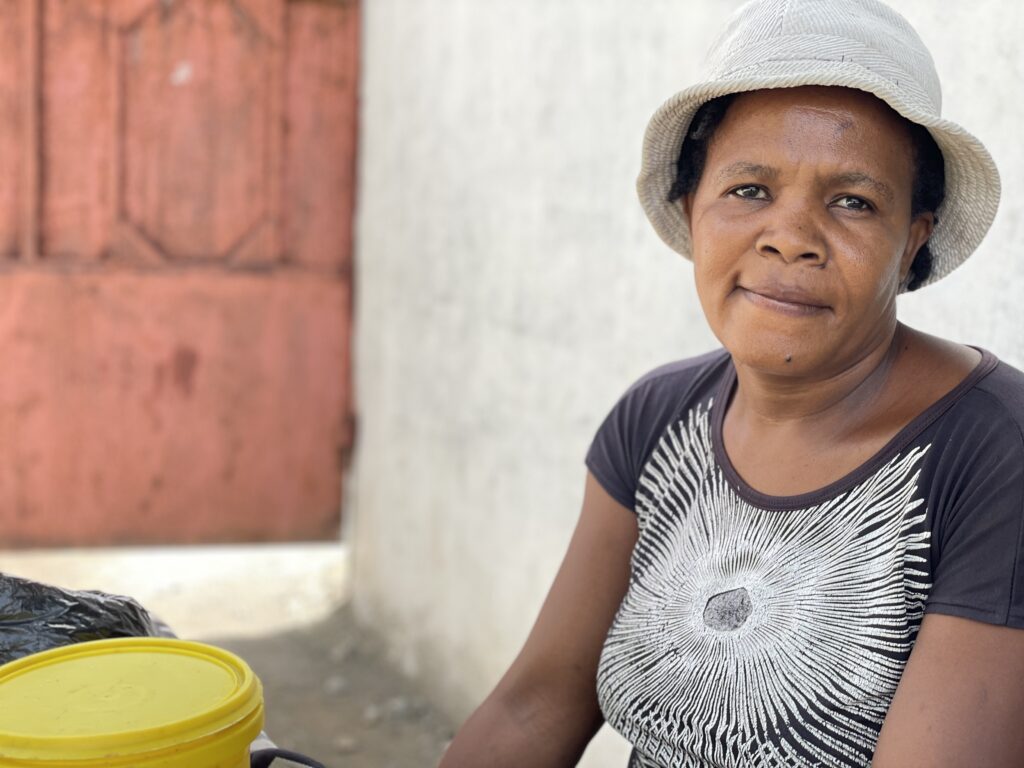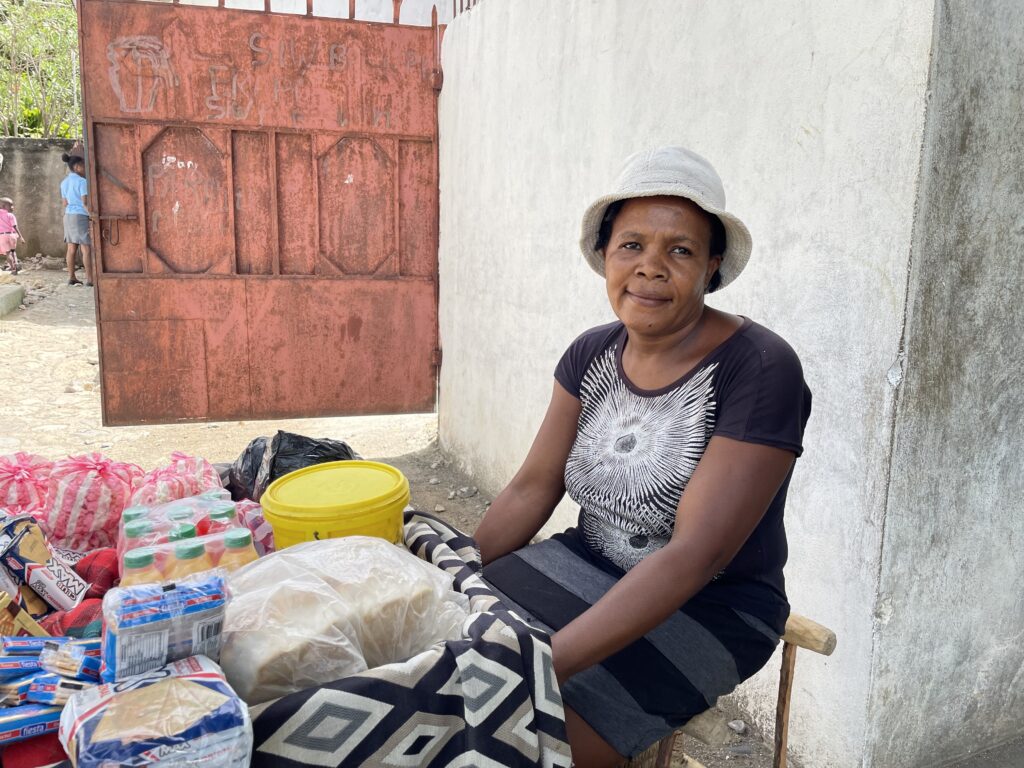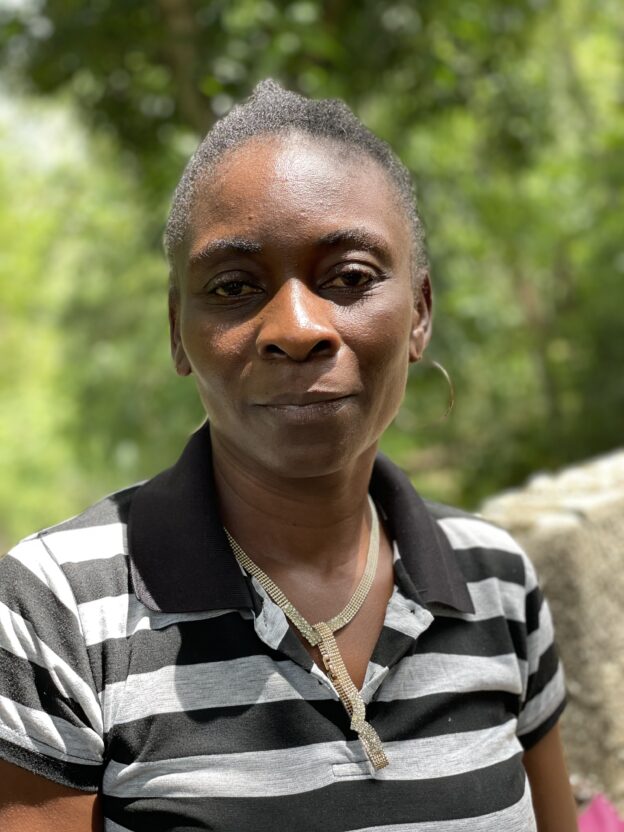Kalabat is the site of a parish church and a weekly open market in eastern Gwomòn. It is a challenging ride on a motorcycle from Gwomòn’s downtown area. The road follows a river, crossing back and forth in more than two dozen places. The riverbed is covered with rocks of various sizes, and the muddy water makes the rocks invisible, creating an unpredictable ride.
Gertrude lives in Abela, a small community above Kalabat. She shares a home with her husband and five of their seven kids. One of them is actually her late sister’s child. The girl has been living with her aunt since her mother became seriously ill.
Gertrude used to support the family with income from her small commerce. She was something like a grocer, selling basics like rice, oil, and sugar to her neighbors. She earned enough to keep the family fed and to send the children to school. Her husband added what he could be farming, but he earned very little. But when her sister grew ill, Gertrude spent what she had to try to save her. It only took a few months of trips back and forth to the hospital to burn through the capital in her business. Funeral costs ate up whatever medical expenses hadn’t burned through.This year, the children could not go to school. The family has not had food to eat every day.
She says she looks forward to the program. She has used most of her cash stipend so far to buy food for her family, but she also bought a chicken.
She has asked the team to give her money to re-start her grocery business, but also goats to raise. She wants to raise goats because they can help her send her children to school. If they reproduce, she explains, you can sell one now and again to pay fees. But goats are also insurance. She points out that if she had owned livestock, she could have spent money on her sister’s health without eating up her business.
She hasn’t worked out clear goals for her time in the program yet, but she isn’t worried. “Once you have possessions, you’ll see what to do with them.”

Figenie and her husband have seven children, but just six live with them at home right now. The oldest went off to live with a cousin in Pòtoprens just a couple of weeks ago. “My cousin told me they’d send my child to school.” Figenie has never been able to send any of the children to school herself. They do not even have birth certificates, nor does she have one herself.
She and her husband have supported the family by working in their neighbors’ fields. They “vann jounen.” That means that they sell their labor by the day. They can earn a couple hundred gourds on days when there is work, but that is not a lot for a family of nine. Occasionally, she has been able to buy a gallon of rum on credit, which she then sells by the shot. She might buy tobacco, too, to sell with the rum. But those who sometimes lend her money are reluctant to do it during planting season, when they need all the money they can muster. So she, her husband, and the children must get by on day labor.
She joined the program, and she started to look at what she could do if she had money. The first payment of her weekly stipend was four weeks’ worth, 2,400 gourds, or a little less than $20. She put away 1,000 gourds to use to buy shares in the savings and loan association that the CLM team has set up for her and her fellow members, but she also bought a couple of measures of pigeon peas that she has planted on her own small plot.
She’s asked the team to buy her a pig and some goats that she can start to raise, but she does not have a clear idea what she will do with them. She says clearly enough, “I don’t have a plan yet.”

Mulène is from Kalabat itself, but she only moved back there recently. She had been living as a widow with her daughter in Kwadeboukè, Pòtoprens’s northernmost suburb until about a year ago. She supported herself and her daughter selling groceries. But gang activity drove her out of the room she rented there. She lost everything. She fled back to Kalabat, where she moved in with her mother and her younger sister. She says that they have been living mostly off of neighbors’ charity.
But she has gotten off to a quick start in the program. She took the four weeks’ worth of stipend that she received, and immediately went into business. She bought a range of snacks — cookies, crackers, popcorn — and began selling them off of a small table that she sets up in the schoolyard near her home. Business is good. The schoolchildren buy her inexpensive snacks.
She thought about using the stipend for household expenses, but it didn’t seem right to her. “If someone gives you something, you can’t just wreck it. You can’t just eat it up.”
She’s already thinking ahead. The school year is almost over, so she will need to make a change in her business soon. She hopes to start selling her snacks in the market, but she wants to go back into the grocery business as well. She will be able to do that, she says, as soon as the CLM team transfers to her the funds for income-generating activities that it plans for her. She wants to raise goats as well, but in the light of her experience as a grocer, raising goats still seems a little like an afterthought.

